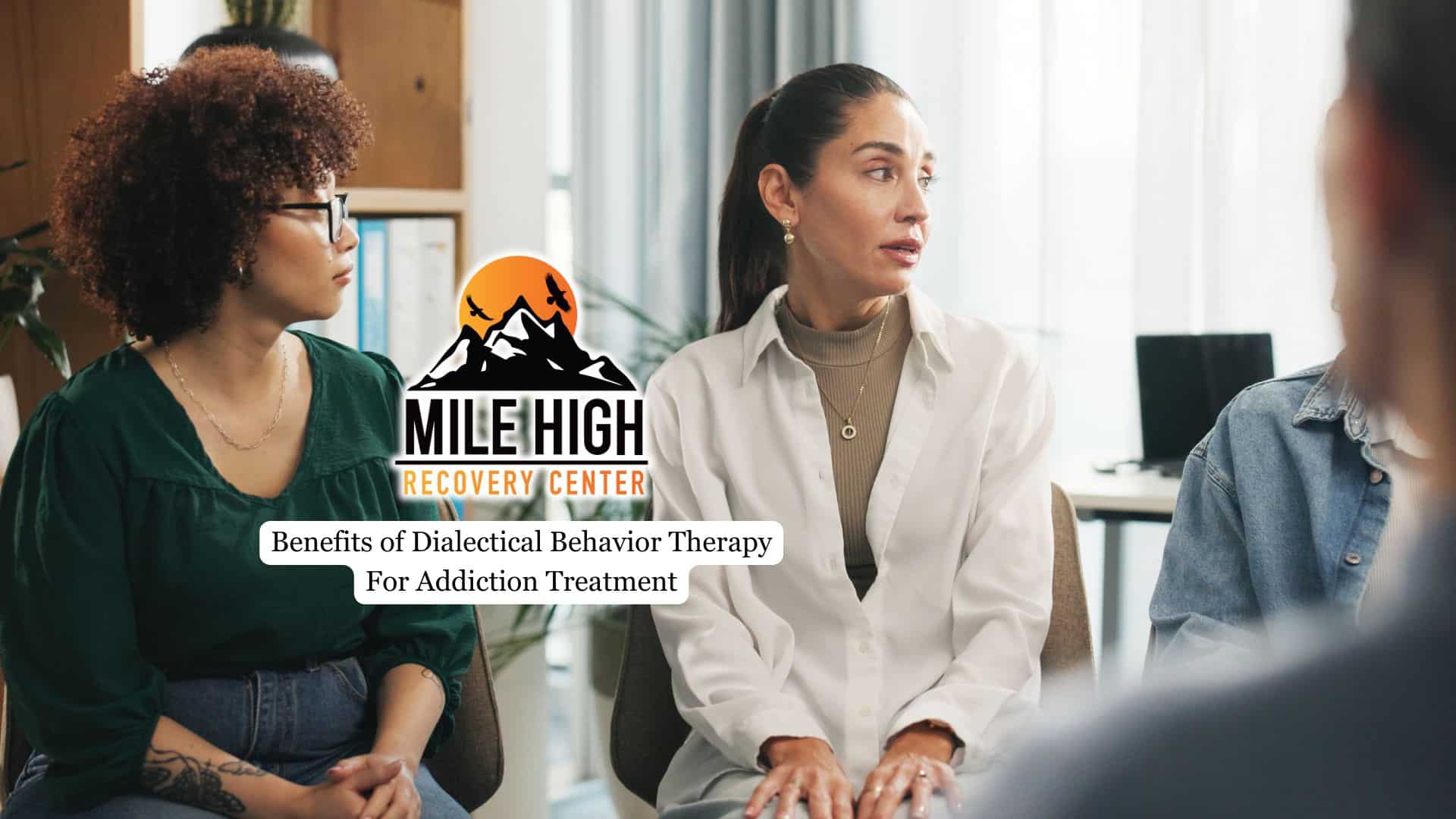Addiction is a complex and chronic disorder that impacts many aspects of a person’s life, including their mental health and relationships. Dialectical Behavior Therapy (DBT) is gaining recognition as an effective method for addiction treatment, particularly for individuals struggling with co-occurring mental health disorders.
In this article, we will explore the benefits of Dialectical Behavior Therapy for addiction, how DBT helps individuals manage substance use disorders, and why it is increasingly incorporated into comprehensive treatment programs.

How Does DBT Help in Addiction Treatment?
Dialectical Behavior Therapy is a type of cognitive behavioral therapy (CBT) originally developed to treat borderline personality disorder. It has since been adapted for a range of mental health conditions, including substance use disorders. DBT focuses on four treatment components: mindfulness, distress tolerance, emotion regulation, and interpersonal effectiveness.
These four treatment areas teach individuals to understand their emotions better, cope with distress, improve relationships, and live mindfully in the moment. Unlike traditional cognitive behavioral therapy, DBT encourages acceptance as well as change, making it particularly effective for those with self-destructive tendencies or behaviors that interfere with therapy.
The benefits of Dialectical Behavior Therapy for addiction are wide-ranging and integral to effective addiction treatment.
Emotional Regulation
Dialectical Behavior Therapy teaches individuals skills to better understand and manage their emotional responses, which is vital in addiction recovery. People struggling with substance use disorder often experience intense mood fluctuations that can lead to impulsive substance cravings.
By learning emotional regulation skills, patients gain tools to recognize early signs of emotional distress and apply techniques to soothe themselves without turning to alcohol or drugs. This improved regulation helps reduce the severity and frequency of emotional triggers, making relapse less likely and fostering a more stable recovery process.
Distress Tolerance
One of the core components of DBT is distress tolerance, which helps individuals cope with painful or challenging emotions and situations without resorting to substance use. Many people with addiction began using as a means to escape or numb distress.
DBT teaches practical strategies, such as distraction, self-soothing, and acceptance techniques, which enable individuals to endure uncomfortable feelings or crises without giving in to self-destructive behaviors. This capacity to tolerate distress is crucial in preventing relapse during stressful moments or triggers commonly encountered in the addiction recovery journey.
Mindfulness
Mindfulness in DBT involves learning to stay fully present in the moment and observe one’s thoughts, feelings, and bodily sensations without judgment or immediate reaction. For those in addiction recovery, mindfulness helps break automatic patterns of responding impulsively to cravings or emotional triggers.
By cultivating awareness, individuals can pause, assess their internal experience, and consciously choose healthier coping responses. This heightened awareness empowers people to interrupt the cycle of substance misuse and gradually develop greater control over addictive urges.

Interpersonal Effectiveness
Recovery from addiction often requires repairing or rebuilding relationships that have been damaged by substance misuse. DBT enhances interpersonal effectiveness by teaching skills to communicate assertively, maintain personal boundaries, and develop supportive social connections.
Many individuals with addiction struggle to ask for help or express their emotions, which can isolate them further and heighten relapse risk. DBT helps individuals build confidence in their communication and develop healthier relationships, providing essential social support for sustained recovery.
Long-Term Recovery Support
One of the lasting benefits of DBT is its focus on helping individuals apply the skills learned in therapy across diverse real-life situations beyond the formal treatment setting. This ongoing application promotes a sustainable path to recovery by equipping people with tools to handle future stressors, cravings, and interpersonal challenges effectively.
Rather than a temporary fix, DBT encourages a lifelong practice of mindfulness, emotional regulation, distress tolerance, and interpersonal skills, which can help prevent relapse and support continuous growth in recovery.
The Intersection of Addiction and Mental Health
Because addiction impacts both behavior and emotional well-being, dialectical behavior treatment may be especially beneficial in this regard, as it helps you understand and regulate emotional responses that often trigger substance use.
It also typically involves a combination of individual therapy sessions and group skills training. In individual therapy, a care provider works with clients to develop a personalized treatment plan and structured daily routine, targeting specific patterns of behavior related to addiction and emotional dysregulation. Group therapy sessions focus on teaching coping skills such as mindfulness and distress tolerance in an interactive, supportive environment.
Many outpatient treatment centers integrate DBT with other treatment strategies, such as medication-assisted treatment or traditional 12-step programs, providing a holistic approach to addiction recovery. Following treatment, individuals are encouraged to continue practicing DBT skills to prevent relapse and maintain their progress.
Final Thoughts from Mile High Recovery
The benefits of Dialectical Behavior Therapy for addiction treatment are significant, especially for individuals dealing with substance abuse, co-occurring mental health disorders, or struggles with emotional regulation. DBT helps individuals learn to apply skills to cope with distress, regulate emotions, and strengthen relationships, all of which are critical to the journey to recovery.
At Mile High Recovery Center in Denver, we offer DBT as part of our comprehensive outpatient treatment plan designed to empower people struggling with addiction to reclaim their lives. Our effective and compassionate approach addresses the emotional and psychological roots of substance use, giving hope and healing to those ready for lasting change.







